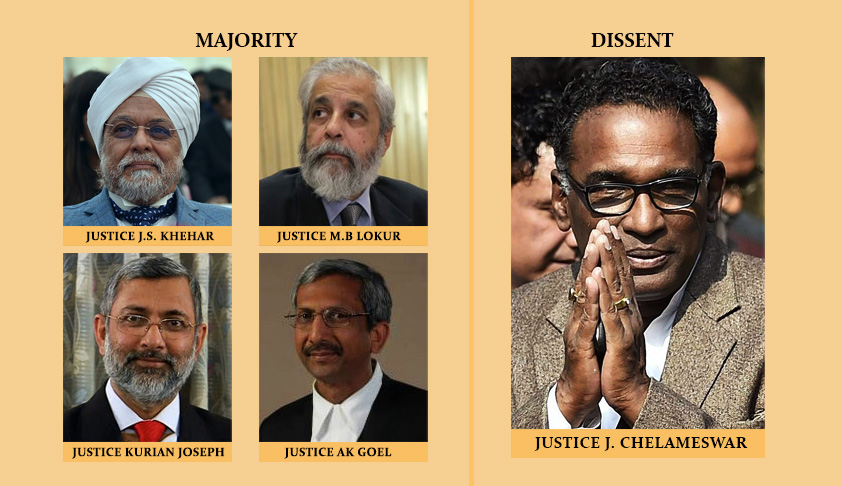SC To Hear Review Plea Against Quashing Of NJAC In March
LIVELAW NEWS NETWORK
22 Jan 2018 8:43 PM IST

Next Story
22 Jan 2018 8:43 PM IST
The Supreme Court today said it will hear a petition filed by 'National Lawyers' Campaign for Judicial Transparency and Reforms' seeking review of its October 2015 judgment that quashed NJAC “sometime in March”.“We are seeking complete dismantlement of collegium system of appointment of judges to the Supreme Court and High Courts”, advocate Mathew Nedumpara, representing the...
